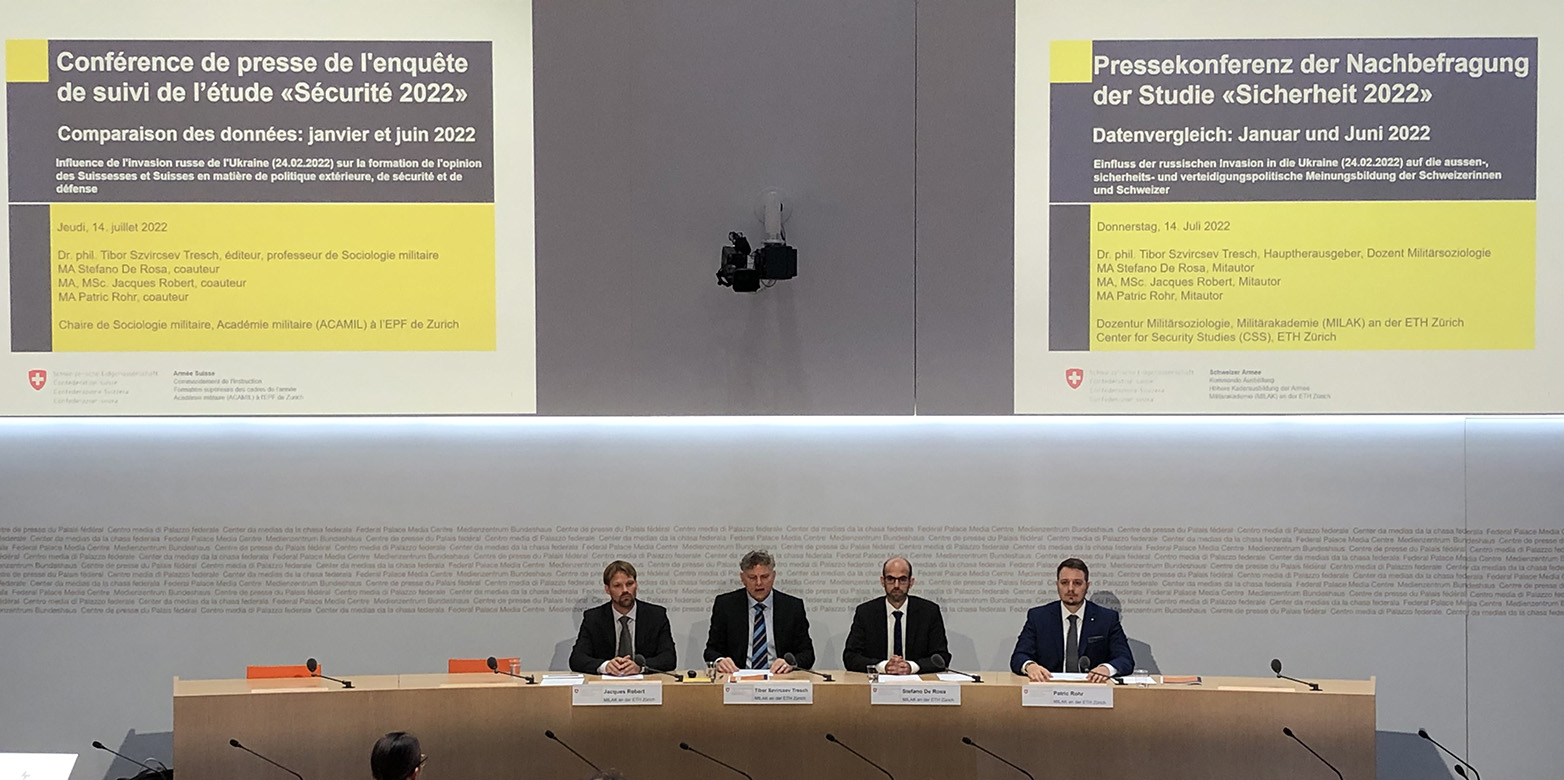Nachbefragung der Studie «Sicherheit 2022» aufgrund des Krieges in der Ukraine
With the war in Ukraine, the Swiss are more pessimistic about the future. The war leads to a more critical view of Swiss neutrality. At the same time, security policy cooperation with NATO or the EU is becoming more popular. In addition, the Swiss want to strengthen Switzerland's defense capabilities. Therefore, a good training and equipment of the army is required.

This is shown by the results of the follow-up survey of the “Sicherheit 2022” study, which is published by the Military Academy (MILAK) at ETH Zurich and the CSS.
Download To the publication (in German) (PDF, 5.9 MB)
General remarks: The data for the "Sicherheit 2022" study was collected before the Russian invasion of Ukraine (02/24/2022) in January (01/04/2022 - 01/20/2022). For this reason, a slightly shortened phone follow-up survey of the "Sicherheit 2022" study was conducted from May 30 to June 17, 2022 in order to show possible effects of the war in Ukraine on the attitudes towards foreign, security and defense policy of the Swiss population.
Sense of security and perception of Switzerland and the world: Swiss people are more pessimistic about the future than in January 2022. This applies to the near future of Switzerland (22% pessimistic, +9 percentage points) as well as the future of the global political situation (76% pessimistic, +8 pp). A majority of 58% assumes that there will be more armed conflicts in Europe in the future. One in three people reports that they have become more anxious because of the war in Ukraine.
Foreign and security policy: A majority of the population continues to support soft forms of cooperation without institutional ties, such as "good offices", increased conflict mediation and increased development aid. Switzerland's commitment within the UN (commitment to UN affairs, Swiss UN peacekeeping forces) continues to be supported by a majority. A quarter of the population calls for Switzerland to join NATO. On the other hand, Switzerland's willingness to move closer to NATO has increased significantly. 52% (+7 points compared to January 2021) can now imagine closer cooperation. Support for the view that Switzerland should refrain from forming alliances and mergers with other countries has also increased but is supported by only a third of respondents.
Neutrality and sanctions policy: Approval for Swiss neutrality has fallen to 89% (-8pp). A narrow majority agrees with differential neutrality (57%, +2pp) and the solidarity and identity functions are approved by a clear majority. However, both functions have lost approval compared to January. The importance of neutrality as protection against international conflicts has fallen significantly (58%, -11 pp) and a third of the electorate believe that a European defense alliance would bring more security than maintaining neutrality (35%, +12 pp since January). 2021). Critical voices regarding the feasibility of neutrality are therefore increasing. 77% of Swiss people think it is right that Switzerland supports the sanctions against Russia and 71% believe that the sanctions supported are compatible with Switzerland's neutrality.
Attitudes towards the Swiss army: The Swiss population is significantly more in favor of the need for the Swiss army in June 2022 (80%, +5 pp). The desire for a fully equipped army has increased significantly compared to the January survey and has reached a high (74%, +4 pp). As in January 2022, the demand for a very well-trained army is also very high. Significantly more people feel that defense spending is not high enough (19%, +12 pp). The Swiss also continue to support the militia system, do not want to abolish the compulsory military service and are satisfied with the performance of the army.